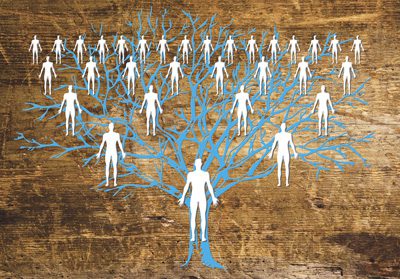 Is it Destiny?
Is it Destiny?
If your family has a history of drug or alcohol abuse, it may seem as if you are destined to become addicted yourself or that you won’t be able to overcome your addiction because of your chaotic environment or familial influences.
You may have heard that addiction is a genetic issue and can’t be helped, or that because your loved ones relapsed after treatment, you will too. But that’s not necessarily true.
Research shows that there may be a link between genetics and drug or alcohol addiction. Yet it also shows that you can overcome these risk factors with the correct treatment and support.
The Link Between Addiction and Genetics
Studies reveal that everyone has a genetic predisposition for drug or alcohol addiction because it’s “hardwired” into our brains. However, some people are more predisposed than others. Genetics make up about 50 percent of the risk for drug and alcohol addiction, which is why not everyone who uses these substances becomes addicted, dependent, or a regular user.
According to a report by the National Center for Biotechnology Information, if you have at least one parent with an alcohol or drug dependency, you are eight times more likely to develop one yourself compared to those whose parents don’t have an addiction. However, that does not quite answer the question of whether addiction runs in the family.
What it does show is that some genes play a role in addiction, but that addiction is also influenced by other factors. These include your environment, your parents’ genetic makeup, your response to drugs and alcohol, and the expectancies of what using these substances will do to you. A further understanding about genes can possibly lead to treatments that can end addiction, but there is still much unknown at this time.
Using DNA to Find the Connection
In 2003, researchers completed the Human Genome Project (HGP), which allowed scientists to find all the genes that compose a person’s DNA and make that information available to researchers. They were then able to develop studies to compare one type of DNA to another.
Part of this experiment included studying genetics and addiction, specifically looking at families who had several members with substance dependencies and comparing those members to family members who did not suffer from addiction. Researchers looked for genes that control brain chemistry or drug responses and concluded that some genetic markers were indeed held in common by family members suffering from addiction. Studies looking for further connections continue today.
How Drugs and Alcohol Rewire Your Brain
Even if you have a low genetic predisposition for drug or alcohol dependency, you can still become addicted. That’s because constantly and repeatedly abusing these substances can permanently rewire your brain even if the addiction is because of social or environmental factors.
Every time you abuse drugs or alcohol, the brain’s wiring associated with these substances is strengthened. The substances directly or indirectly target your brain’s “reward system” with dopamine, a neurotransmitter that, among other things, regulates the feeling of pleasure. When you overstimulate this system with drugs or alcohol, the euphoric effects produced reinforces your substance use. The more you go after this effect, the greater your chances of developing an addiction.
If you or someone you love is in need of alcohol or drug treatment, contact us anytime at (877) 977-3268. We are here to help.
Other Sources:
Genetics and Epigenetics of Addiction. National Institute on Drug Abuse. Retrieved July, 2017.
All About The Human Genome Project (HGP). National Human Genome Research Institute. Retrieved July, 2017.


